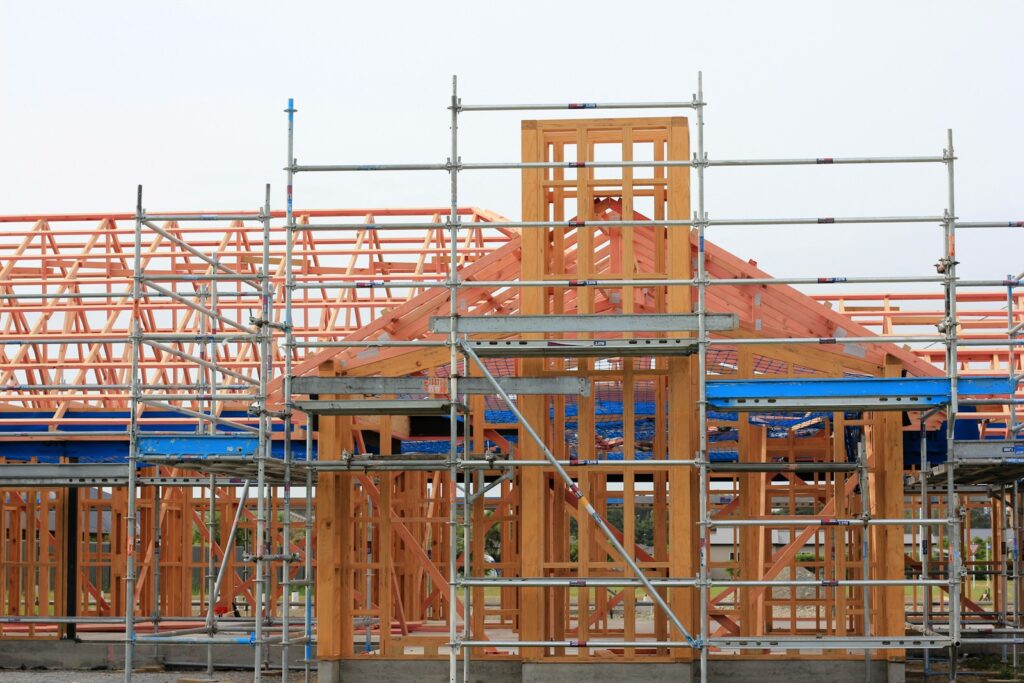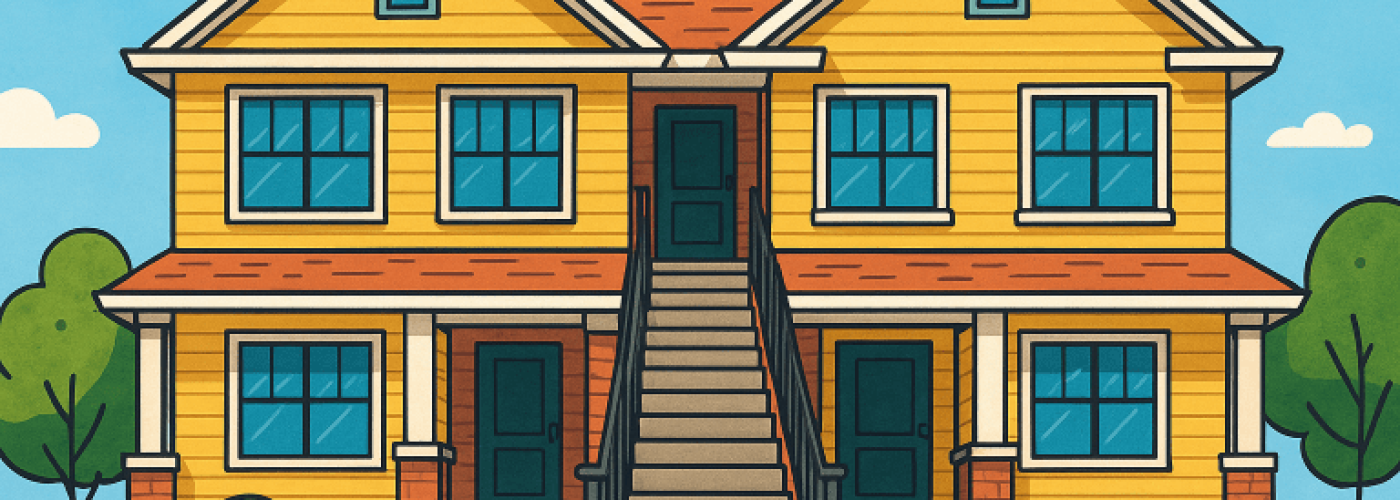Tents are for camping. In Canada, they shouldn’t count as housing.
Canada’s housing system is in crisis. That’s not fresh news, but it’s a reality many of us are living in real time—through rent hikes, bidding wars, renovictions, and the growing impossibility of owning a home unless you’ve got reasonable wealth or the luck of a lottery.
There are various reasons for our current housing crunch, but the main one is that we allowed affordable housing to become a commodity instead of recognizing it as a basic human need. Governments stopped building affordable housing and handed control to the private market, which prioritizes profit over people. We treated homes like investments instead of fundamental human rights, and now we’re paying the price.
What’s increasingly frustrating is that our governments continue to treat this crisis as if it’s unsolvable, as if the free market just needs more time or fewer regulations to magically make housing affordable again. But that’s not how this has to work. And more importantly, other countries have already figured it out.
What Other Countries Got Right
The idea that affordable housing should be accessible and treated as a public good isn’t radical. It’s a reality in places like Austria, Sweden, and Singapore—countries that understood the situation decades ago and chose not to treat housing as an asset class but as essential infrastructure, like roads or hospitals.
In Vienna, nearly 60 percent of residents live in city-built or subsidized housing. These aren’t ghettos or low-quality band-aids; they’re attractive, well-integrated homes in the city. Mixed-income housing is the norm. Everyone from young professionals to families with children to older adults on fixed incomes can access beautiful, permanent homes with affordable rents. And because the city retains ownership of the buildings, they’re shielded from speculation, corporate landlords, and the whims of the market.

Sweden, similarly, has adopted a universal approach to public, affordable housing. About 20 percent of Swedes live in municipally owned housing, which is not income-qualified or restricted to the poor. The result is a system that’s destigmatized, widely supported, and functional. The Swedes treat public housing with pride because it belongs to everyone, not just the vulnerable or marginalized.
Singapore operates one of the world’s most successful large-scale housing programs. Over 80 percent of its population lives in Housing Development Board (HDB) flats—government-built apartments that are sold on 99-year leases to citizens at subsidized rates. These units are thoughtfully integrated with amenities like schools, transit, and shopping. The government actively manages supply and affordability, which helps prevent the runaway speculation that has plagued cities like Toronto and Vancouver.
The Common Thread: Public Ownership and Political Will
So what do all of these countries have in common? These governments don’t just regulate—they build, own, and manage housing as a public good.
Meanwhile, in Canada…
Meanwhile, in Canada, we’ve been steadily walking in the opposite direction for decades. From the late 1980s and through the ’90s, federal investment in social housing all but disappeared. Responsibility was downloaded to the provinces, then to municipalities, most of which were underfunded and ill-equipped to deal with it. Developers filled the gap, not because they wanted to solve the crisis, but because the market made it profitable.
Today, just 3.5% of Canada’s affordable housing stock is non-market, compared to 23% in the UK or 56% in Vienna. The federal National Housing Strategy (2017) promised 160,000 affordable homes, but as of 2024, only 60,000 have been completed, many priced at 80% of market rent, which remains unaffordable for most.

What the Liberals and Conservatives Are Offering (and What They’re Not)
Under Prime Minister Mark Carney, the Liberals have promised to do more—speed up construction, streamline permitting, and offer tax breaks to developers who build rentals. But none of that addresses the core issue: we’re still relying on the private sector to solve a public crisis. And the private sector’s job isn’t to make housing affordable—it’s to maximize profit. Hoping that profit-driven entities will deliver public good is naïve at best, and negligent at worst.
The Conservatives under Pierre Poilievre offer a different, but equally flawed, vision. Poilievre’s plan involves selling off federal land to private developers, cutting so-called “red tape” around construction, and financially punishing cities that don’t meet growth targets. He says that the problem is “gatekeepers” and that we just need to build faster and freer. If history is any guide, deregulation and public land sales don’t produce affordable housing—they produce luxury condos, rental monopolies, and more evictions.
The NDP and Greens Are Telling the Truth About Housing
In contrast, the NDP and the Green Party are the only federal voices consistently talking about non-market affordable housing. The NDP’s “Housing for All” plan proposes new investments in co-operatives, public housing, and rent-geared-to-income units. It also calls for stronger rent control, anti-renoviction laws, and an expansion of supports for renters, not just homeowners. The Green Party echoes many of these points, with an added emphasis on climate-friendly housing builds.
We Know What Works — So Let’s Do It
We don’t need to wait decades or launch endless pilot projects to act. There are immediate, proven steps we could take right now if the political will existed. We could fund co-operative and public housing developments on a large scale. We could use existing public land for long-term rentals instead of selling it off. We could enforce affordability requirements tied to actual incomes, not market averages. We could strengthen zoning laws to prioritize people over profit. And we could establish a national housing agency that builds, owns, and operates housing in perpetuity, ensuring it remains affordable for generations to come.
We shouldn’t be waiting for decades or launching endless pilot projects to act. There are immediate, proven steps we could take right now—if the political will existed:
- Fund co-operative and public housing developments on a large scale, the way we did in the 1970s and 1980s.
- Use public land for permanently affordable housing instead of selling it to developers.
- Tie affordability to actual incomes, not arbitrary percentages of market rent.
- Create a national housing agency with the power to build, own, and operate non-market housing.
- Enforce inclusionary zoning so that all new developments include a meaningful percentage of affordable units.
- Strengthen rent control and close loopholes that lead to renovictions and demovictions.
- Ban corporate and foreign ownership of residential properties that sit empty or are used purely for speculation.
- Upzone single-family neighbourhoods to allow low-rise multi-unit housing like duplexes and fourplexes.
- Reinstate long-term federal investment in non-market housing as essential infrastructure.
We already know what works—because it’s working elsewhere. We just have to stop pretending the market will fix this, and start treating housing like what it is: a human right.
Obstacles
The real “obstacle” isn’t hard to understand. It’s a free-market system that consistently puts profits over people. Capitalist governments consistently prioritize the interests of developers, corporate landlords, and real estate lobbyists over the basic needs of Canadian citizens. Why? Because our housing system isn’t broken — it’s working exactly the way a profit-driven system is supposed to: extracting as much money as possible from a basic human need, while leaving millions of Canadians scrambling to survive.
If you’re wondering why nothing changes, it’s because there’s no incentive for it to change. The people who benefit from the current system have money, power, and access — and they use it. Meanwhile, the people harmed by the system are told to be patient or settle for trickle-down “solutions” that never arrive.
But we don’t have to accept this. Other countries chose to value people over profit, and they built housing systems that reflect that choice. We can too. But only if we stop hoping someone else will fix it and start demanding action ourselves.
Put some pressure on your MP/MPP. Show up at town halls. Push for co-ops, public builds, rent control, and policies that put housing back into public hands. The free market won’t save us — but we could save each other, if we stood up and fought for it.


